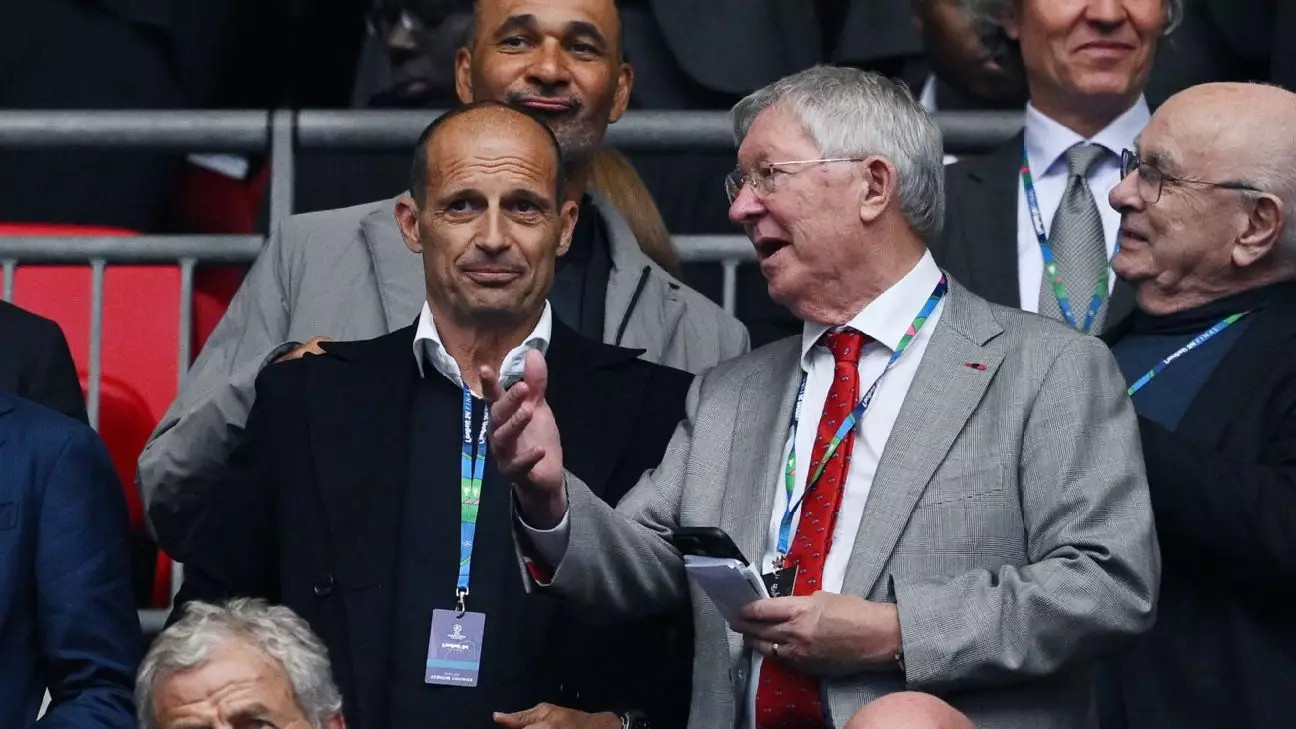In a recent conversation with the BBC, former Manchester United manager Sir Alex Ferguson opened up about his ongoing fondness for the job he held for over two decades. Even eleven years after stepping away from the touchline, Ferguson, now 82, revealed that he sometimes longs for the thrill and pressure of managing one of football’s most illustrious clubs. The reflective nature of his comments signifies not just nostalgia but a deep-rooted connection to the game and the memories forged while leading the iconic team.
Ferguson’s career is nothing short of a footballing fairytale, marked by unparalleled success. He guided Manchester United to 13 Premier League titles, two UEFA Champions League victories, and numerous domestic trophies. During an era where he defined managerial excellence, he experienced the high stakes and incredible energy of European competitions, which he admits are difficult to replicate in retirement. His statement, “I miss it sometimes,” encapsulates a sentiment shared by many who have dedicated their lives to competitive sports, illustrating how indelible the experience can be.
The Big Games: A Manager’s True Passion
What Ferguson misses most, he says, are the big matches—especially in European football. His memories of intense competition and the adrenaline rush of such pivotal moments stand out in his recollections of his time at United. Watching these significant games post-retirement became a way for him to connect with that past, as if he were still part of the high-stakes environment that he thrived in.
Interestingly, Ferguson’s continued presence at European finals suggests his unwavering commitment to the sport and the club he once led. This connection to major tournaments not only underscores his passion for football but also highlights the club’s legacy, which he feels should always prioritize participation in these grand events. It’s a sentiment that adds weight to discussions about the current state of Manchester United, which has faced challenges in achieving the same level of success since his departure.
Challenges and Changes at Old Trafford
Since Ferguson’s exit at the end of the 2012-2013 season, Manchester United has encountered a series of ups and downs. The club has seen a parade of managers, including David Moyes, Louis van Gaal, José Mourinho, Ole Gunnar Solskjær, and current chief Erik ten Hag, all striving to recapture the glory days of Ferguson’s tenure. Each managerial reign has brought its own set of challenges, emphasizing the complexities involved in transitioning from one of the most successful eras in football history.
Despite Ferguson’s absence, his legacy continues to loom large, influencing fans, players, and managerial decisions. As United prepares to face Crystal Palace at Selhurst Park, there remain hopes that the club will once more ascend to the heights achieved under Sir Alex’s guidance. The struggle for consistency and silverware is a reminder of the extraordinary standards he set, reflecting the ongoing pressures that accompany life at one of the world’s most successful football clubs.
The reflections of Sir Alex Ferguson serve as both a tribute to his storied past and a poignant reminder of the relentless pursuit of excellence in professional football. His legacy not only inspires contemporary managers and players but also continues to shape the identity of Manchester United as it seeks to navigate a competitive landscape with aspirations of returning to former glories.

Leave a Reply